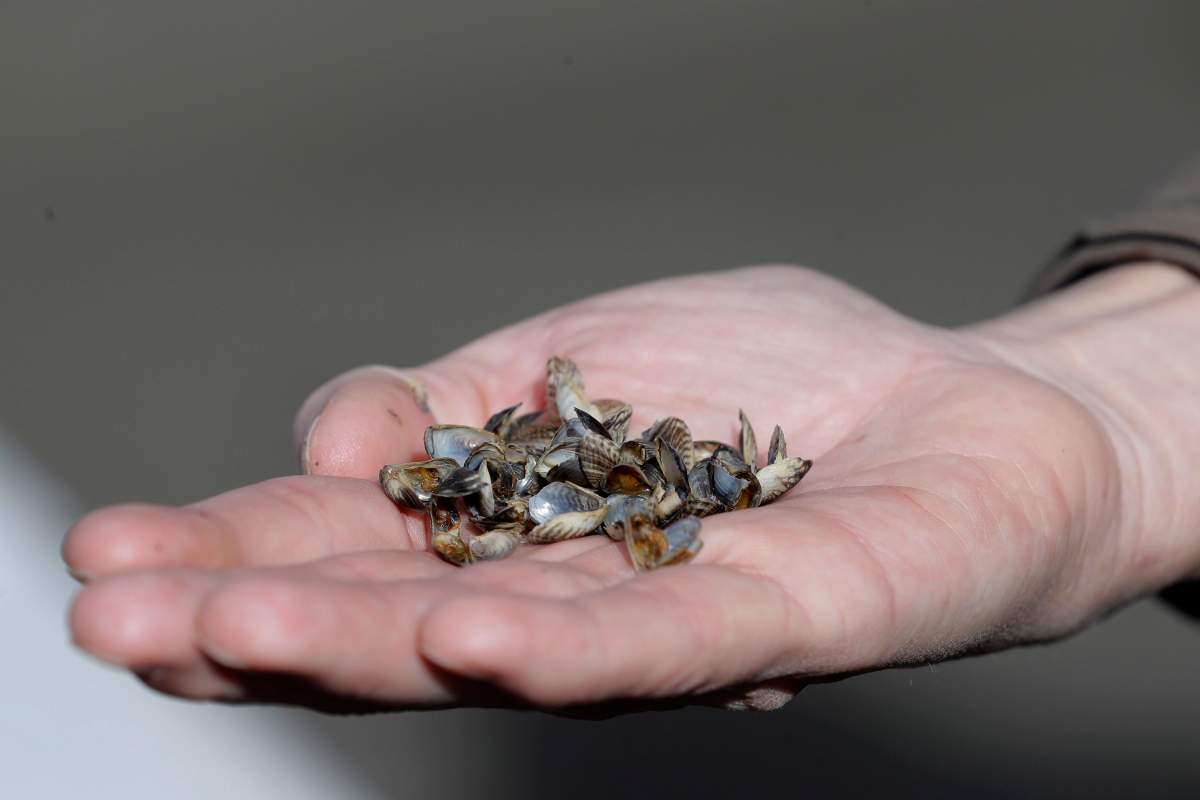British Columbia’s ongoing battle to prevent mussel infestation received a seven-figure boost this week.

On Tuesday, the province announced that BC Hydro will be investing into the program for the next five years, at $900,000 a year.
The goal of the Invasive Mussel Defence Program is to prevent invasive mussels from entering B.C. waters via watercraft inspection stations and early detection monitoring.
BC Hydro’s funding will start this year. The program will also receive $150,00 from the BC Wildlife Federation, the Pacific Salmon Foundation and the Habitat Conservation Trust Foundation.
“I welcome the support from BC Hydro and our conservation partners as we continue the crucial work of keeping our waterways free of invasive mussels,” said Nathan Cullen, B.C.’s minister of land and water.

Get daily National news
“The province has made fighting invasive mussels a priority and we will keep taking action alongside our partners and communities.”
According to the province, this week’s financial investments join ongoing contributions also made by the Columbia Basin Trust, Columbia Power and FortisBC.
“While substantial action is underway to protect B.C. waterways from invasive mussels, the government of B.C. continues to advocate to the federal government to resume funding this vital program,” said the province.

Watercraft inspection stations are open from April until October.
Along with trying to prevent prevent zebra and quagga mussels from entering B.C. waterways, inspectors promote the ‘clean, drain and dry’ motto to boat owners.
The province says invasive zebra and quagga mussels pose significant economic and environmental risks because of their ability to damage essential water infrastructure and outcompete B.C.’s native species and ecosystems.
“If they were to be introduced into B.C., the estimated cost of annual removal and management would range from $64 million to $129 million per year,” said the province.
Last year, crews completed around 20,900 inspections while 867 water samples were collected from 83 priority water bodies throughout B.C.

“Invasive mussels pose an increasing and significant risk not only to B.C.’s rivers and lakes, but also to our ability to produce electricity by plugging pipes and other critical equipment in our generating facilities,” BC Hydro president and CEO Chris O’Riley said.
O’Riley noted the company’s annual contribution is in addition to other initiatives and activities that it’s implementing under its aquatic invasive species strategy.
“It is vital to the health of our freshwater ecosystems and fish that we keep invasive mussels out of B.C.,” said Jesse Zeman of the BC Wildlife Federation.
“The impacts of invasive mussel infiltration could be devastating.”








Comments
Want to discuss? Please read our Commenting Policy first.